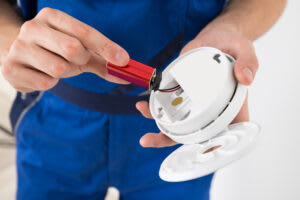 As the weather around Yuma dips into a more comfortable mode, wise homeowners will take this lull in the heat to get ready for cool fronts — that is, making sure your furnace or heat pump is in good working order. While it’s unlikely we’ll have to endure snowstorms or blizzards, it is important to have a handle on how your heating equipment works and what winter HVAC safety hazards you should be aware of.
As the weather around Yuma dips into a more comfortable mode, wise homeowners will take this lull in the heat to get ready for cool fronts — that is, making sure your furnace or heat pump is in good working order. While it’s unlikely we’ll have to endure snowstorms or blizzards, it is important to have a handle on how your heating equipment works and what winter HVAC safety hazards you should be aware of.
Dirty Filter
Keeping a dirty air filter in your HVAC unit can cause problems whether you’re heating or cooling your home. A dirty filter blocks airflow, which can cause all manner of operational issues, principally the failure to heat or cool properly. Thus, a homeowner will be inclined to set the thermostat higher or lower, making the system labor and, in turn, work inefficiently. This can lead not only to higher bills but to breakdowns. Always change the filter regularly, according to the manufacturer’s specifications.
Carbon Monoxide Leaks
While a carbon monoxide leak from your HVAC equipment is rare among all the possible winter HVAC safety hazards, it’s still possible. Principally, a CO leak will occur from a crack in your furnace’s heat exchanger or perhaps from cracks in the flue pipes. Be sure to have your HVAC system inspected before you turn on the heat in the fall or winter. A qualified service tech will check for any cracks in the furnace exhaust pipes that might be leaking condensation or gas. You should also have a CO monitor installed in your home to detect dangerous levels of this deadly gas.
Thermostat Not Calibrated Properly
Although this is one of the winter HVAC safety hazards that probably won’t lead to compromised safety, it will cause your heating to run inefficiently. An HVAC tech will check the thermostat during a routine inspection to make sure it’s functioning properly. If it’s not, it may need to be replaced.
Malfunctioning Pilot Light
Pilot light malfunctions are usually caused by a damaged or dirty sensor. Have the HVAC tech clean the equipment during your maintenance visit.
For more on winter HVAC safety hazards, contact Hansberger Refrigeration and Electric Compny.